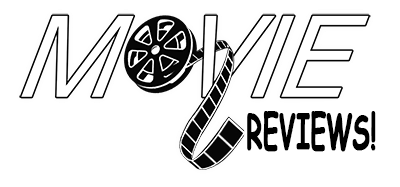 | MOVIE #1,822 • 🍿🍿🍿🍿🍿🍿🍿 • 07.18.24 ALBERT & AKERMAN: AN AUTEURIST STUDY IN CONTRAST + CONTINUUM The French title for this — an episode of a TV program presumably called “Grandmothers” — is Dis-Moi. This is an interesting translation. Well, I guess it’s not a translation. “Tell Me” is the translation. But I digress: there’s something lovely about that phrasing and the utilization of the dash. We all know (and love) the famous French word moi (me) but who knew that tell translates to “dis?” In English, phonetically, that has nearly the opposite connotation: dis me, bro? It’s negative and vaguely threatening. This all circles back, of course, to my internal struggle about what titles to use re European cinema (See my Claire Denis Director Focus if you really want to know how deep this pain cuts). |
Chantal Akerman's mother, whose voice we hear from time to time, but never see, is herself a survivor of the Holocaust. She was sent as a child to Auschwitz along with her parents. There her parents perished, murdered by the Nazis. Chantal Akerman's mother returned, now a teenager. The ordeal is unthinkable, and this is surely a central fact of Chantal's life. To listen to one's own mother must have been, for Akerman, far from simple, mitigated only by narratives such as we listen to in Dis-moi: tales of shared meals, child-rearing, struggle and unexpected outcomes. These are also tales of migration and wandering, border-crossing and frontiers. And of course these are the perpetual themes in Akerman's work.I feel like I have to be careful with my words (IN THIS CLIMATE, am I right?*) but Akerman has never felt like a “Jewish filmmaker” insomuch as that experience is not a focus in her work, even tangentially. But this is ALL that Tell Me is about. Maybe Akerman, still just 30 years old at the time, was coming to terms with what this meant to her. I can’t comment on how and where this thread will lead going forward at the moment, but it’s something to keep an eye on.
To the first point — Akerman’s presence on-screen — I found the persona she presents here as the interviewer to be fascinating. The b-roll of her walking to the subjects’ apartments is wonderful because of how unnatural it seems. She plainly seems to be ‘acting’...
But then, when in the presence of these matriarchs, the veil is slowly lifted, the facade broken down. She doesn’t want these snacks but she also doesn’t want to be rude! …
The episode ends with Akerman watching what I believe is a French-dubbed version of the early 60s' American TV show The Untouchables or the 1967 film The St. Valentine's Day Massacre (it’s something about Al Capone and co.) and drinking vodka…

She nearly nods off and doesn’t finish the vodka because it’s room-temperature straight vodka. The mask is fully off. Chantal Akerman is just a person in the world again, trying to make sense of its madness in the best and only way she knows how.
*Israel is currently doing a genocide.
CHRONOLOGICALLY
⫷ MOVIE #1,821 - (YOU ARE HERE) - MOVIE #1,823 ⫸
⫷ MOVIE #1,821 - (YOU ARE HERE) - MOVIE #1,823 ⫸
Chantal Akerman interviews her mother, and other elderly women who survived the Holocaust. It was released on August 25, 1980.

0 comments:
Post a Comment